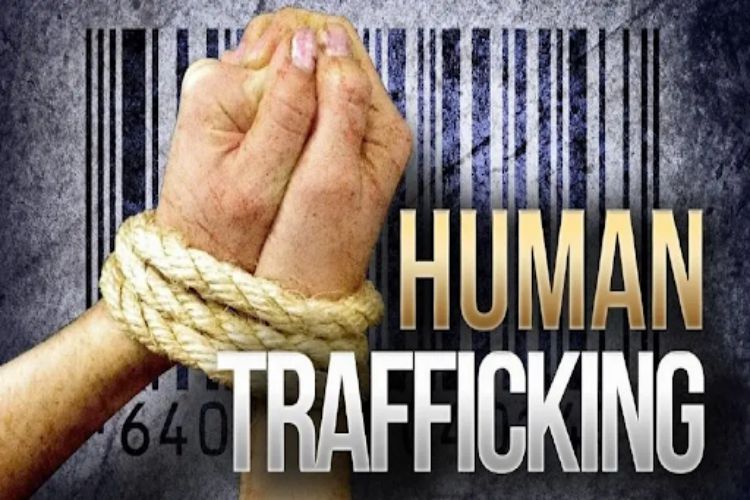 Grooming and trafficking aren’t just dark topics whispered about in corners—they’re real, devastating crimes that leave long-lasting scars on victims. These issues are more common than many realize, and they can happen in almost any setting: online, in schools, within families, and even in glamorous industries like entertainment.
Grooming and trafficking aren’t just dark topics whispered about in corners—they’re real, devastating crimes that leave long-lasting scars on victims. These issues are more common than many realize, and they can happen in almost any setting: online, in schools, within families, and even in glamorous industries like entertainment.
Victims often find themselves trapped in silence, afraid, or even unaware that what’s happening to them is illegal and dangerous. That’s what makes prosecuting these crimes not only vital but also incredibly complex.
In many cases, survivors and families seek help from legal professionals who understand these sensitive topics well. This is where finding entertainment industry grooming and sex trafficking lawyers becomes essential. These lawyers are familiar with the unique dynamics of grooming in high-profile fields and work to make sure justice is pursued. They help navigate the intricate legal system and fight for victims who often feel powerless.
When grooming and trafficking overlap with fame, money, or power, the legal battle can be even harder to fight—and win.
Let’s take a closer look at why prosecuting grooming and trafficking cases is so difficult, and why we need to talk about it more openly.
Understanding Grooming and Trafficking
Grooming is a slow and deliberate process. The abuser builds trust with the victim, often over weeks or months, before crossing the line. It can start with innocent messages, gifts, or attention. Then, gradually, it becomes controlling and manipulative. The aim? To break the victim’s sense of reality and make them emotionally or psychologically dependent.
Trafficking, on the other hand, often involves moving victims for the purpose of exploitation—especially sexual or labor-related. But here’s the tricky part: not all trafficking involves chains or kidnappings. Many victims are trafficked by people they know, trust, or even love. That emotional tie can make it extremely hard for victims to come forward or testify.
Legal Systems Struggle with Gray Areas
One of the main problems with prosecuting grooming and trafficking is how hard it is to prove. Unlike crimes where there’s clear physical evidence, these cases often rely on personal testimony, digital communication, or behavior patterns. And when it comes to grooming, the law often falls behind. There’s not always a clear line between what’s considered “manipulation” and what’s criminal.
In many places, laws are still catching up with how grooming works in the digital age. Social media, online chats, and gaming platforms have become tools for predators. Unfortunately, proving intent and gathering evidence from these platforms is often a major legal challenge.
Victims Often Don’t Speak Up
Another issue is victim cooperation. Grooming can create emotional bonds that feel confusing or even loving to the victim. Many victims feel shame, guilt, or fear of retaliation. Others worry they won’t be believed—especially when the accused is someone with status or influence.
This makes gathering statements and building a case more difficult for prosecutors. Without the victim’s help, it’s like trying to complete a puzzle with missing pieces. Even when victims are willing to speak, defense lawyers often attack their credibility or claim they were “willing participants,” especially in cases involving older teens.
High-Profile Offenders Make It Harder
When trafficking or grooming happens in powerful industries like entertainment, things get even messier. Offenders often have expensive legal teams, strong media influence, and loyal fans. Victims might feel like no one will believe them or that going public could ruin their lives.
In such cases, prosecutors must walk a tightrope between seeking justice and facing enormous public pressure. These high-profile trials can drag on for years and put victims under intense scrutiny.
What Needs to Change?
To make progress, laws must evolve with technology and behavior patterns. Grooming needs to be clearly defined in more legal systems, especially when it happens online. Victim support also has to improve—emotionally, legally, and financially. More awareness and education can also help people spot grooming early and act before things escalate.
Prosecutors, judges, and law enforcement need more training on how these crimes work, and survivors need to know they have support, not shame.
Final Thoughts
Prosecuting grooming and trafficking cases is a challenging path filled with legal, emotional, and societal obstacles. But just because it’s difficult doesn’t mean it’s impossible. With the right lawyers, stronger laws, and more understanding from society, we can help bring justice to victims who’ve been silenced for too long.
Talking about these issues is the first step. Understanding the legal hurdles is the next. And from there, hopefully, change becomes possible.


